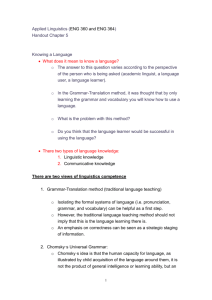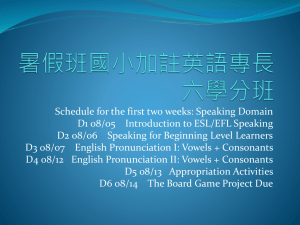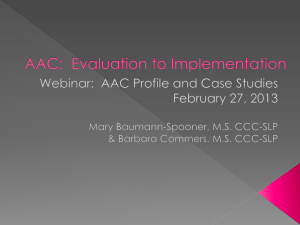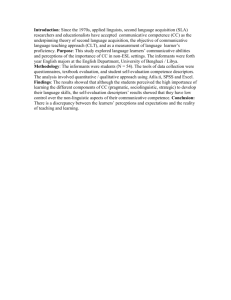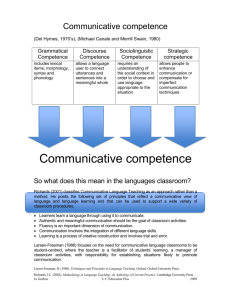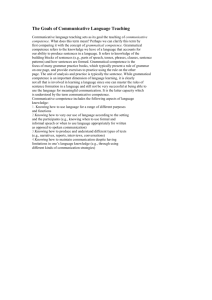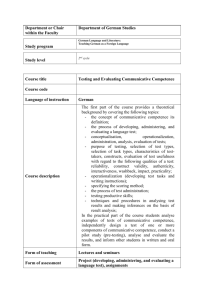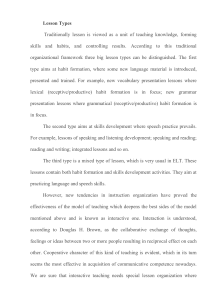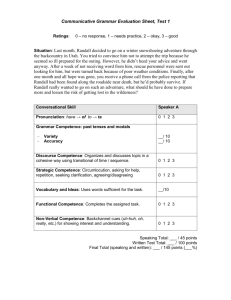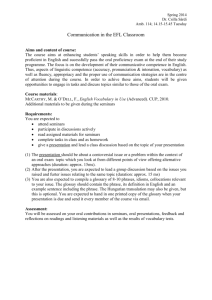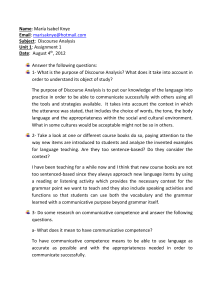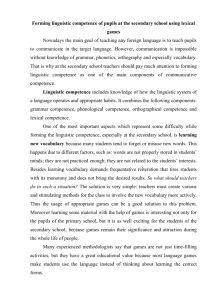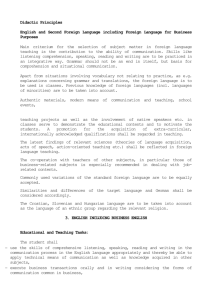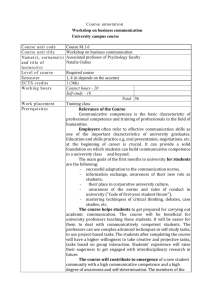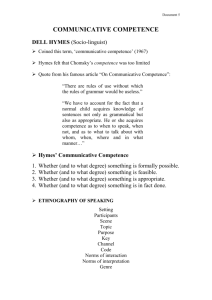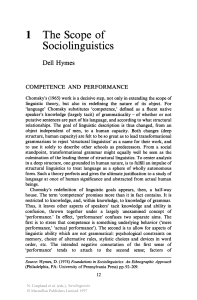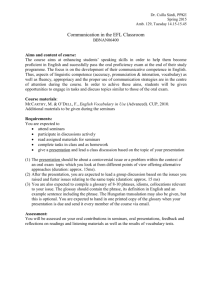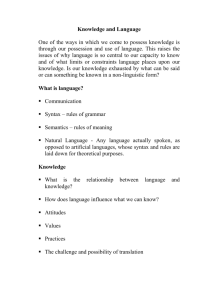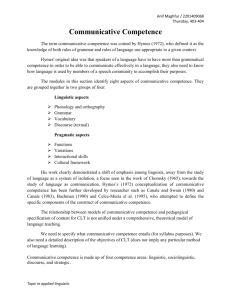LECTURE-5-LANGUAGE-AND
advertisement
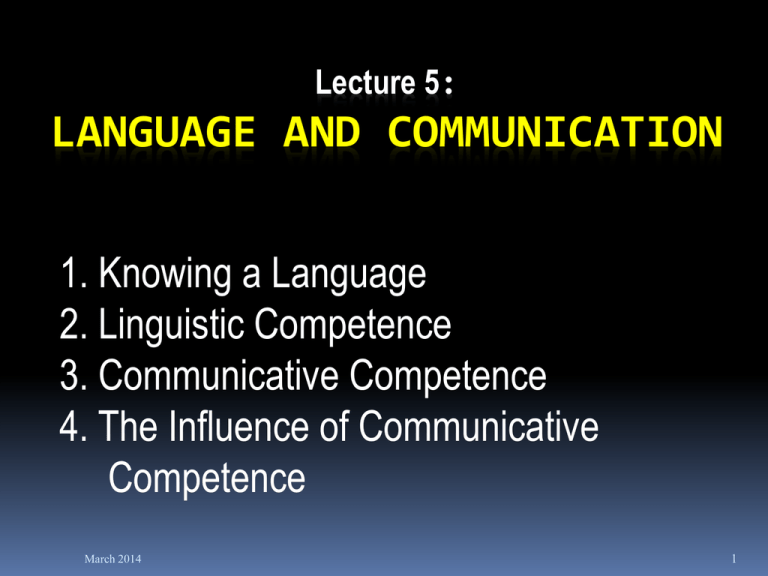
Lecture 5: LANGUAGE AND COMMUNICATION 1. Knowing a Language 2. Linguistic Competence 3. Communicative Competence 4. The Influence of Communicative Competence March 2014 1 Knowing a Language To know a language well and use it successfully vary considerably: historically and culturally, and between individuals They depend on the perspective of the person being asked the question: an academic linguist, a language user, or a language learner March 2014 2 Knowing the grammar and vocabulary of the language is one thing. Being able to put them to use invloves other types of knowledge and ability as well. March 2014 3 Linguistic Competence It is a useful first step to isolate the formal systems of language (pronunciation, grammar, and vocabulary) An emphasis on formal correctness can be seen as a matter of pedagogic procedure, a strategic staging of information, of the kind which is familiar in any kind of ordered learning. March 2014 4 Chomsky : the human capacity for language is not the product of general intellegence or learning ability, but an innate, genetically determined feature of the human species. We are born with considerable preprogramed knowledge of how language works, and require only minimal exposure to activate our connection to the particuloar language around us. March 2014 5 Newborn infant brain already contains a Universal Grammar (UG) which forms the basis of competencein the particular language the child goes on to speak. This linguistic competence is seen as modular, separate from other mental abilities March 2014 6 Language as an object of academic enquiry becomes something more biological than social, and similarities between languages outweigh differences. (Chomsky) Language is separated from other factors involved in its use such as body language and cultural knowledge March 2014 7 Communicative Competence Four types of knowledge (Hymes): 1. possibility 2. feasibility 3. appropriateness 4. attestedness March 2014 8 1. A communicatively competent speaker knows what is formally possible in a language (the expression conforms the rules of grammar and pronunciation). 2. A communicatively competent speaker knows what is feasible. March 2014 9 3. Appropriateness concerns the relationship of language or behavior to context. It concerns conformity to social convention. 4. knowledge of attestedness (occurrence be accounted by the three parameters) March 2014 10 Influence of Communicative Competence - developing learners’ capacity to use the language effectively - allowing teachers and learners to achieve a more balanced view of what successful communication involves - powerful model for applied linguistics March 2014 11 Any questions? If not, end of lecture 5 March 2014 12
